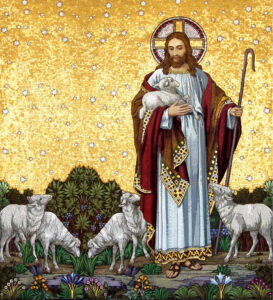It warms the cockles of our hearts to watch two great giants in the marvellous project of evangelisation: Peter and Paul. While Peter speaks to the Jews in particular, Paul reaches out to the Gentiles. Luke devotes to them the greater part of the ‘Acts of the Apostles’, a book carved out from his Gospel. From there is taken the first reading of all the Sundays of Easter until Pentecost Sunday. The book’s second half (chapters 13-28) covers three missionary journeys that Paul undertook, between A.D. 46-48, to Asia Minor (major part of modern-day Turkey), to Greece, and finally to Rome, which was the heart of the gentile world.
The Jews, entitled to travel throughout the Roman Empire, would seek and speak to other Jews in any important city they visited. For instance, in Antioch of Pisidia, Paul and Barnabas, a prominent early, Jerusalem Christian of Cypriot Jewish extract, visited the Jewish community at their sabbath gatherings in the synagogue. Out of deference to him as a visitor, they asked Paul to be the commentator of the day. Paul seized the opportunity to highlight a series of facts that not only give Jewish history its meaning but also clearly point to Christ. Paul showed that God’s promises to Israel were fulfilled in the Resurrection.
What Paul spoke on the following Sabbath forms the crux of today’s reading (Acts 13: 14. 43-52). This time, Paul did not address the Jews alone but all the God-fearing, including non-Jews. This approach achieved three things: it proved that Paul was no racist; it brought hope to the gentiles; and it precluded the Jews from feeling superior to others, in the belief that only they were worthy of hearing God’s word and being called His children.
From the people’s response it is evident that they were thirsting to hear the Good News. The following sabbath they brought along other pagans. Although such progress aroused jealousy, revilement and persecution from the Jews, the inspired duo did not cower down. Behold their parting shot: ‘It was necessary that the word of God should be spoken first to you. Since you thrust it from you, and judge yourselves unworthy of eternal life, behold, we turn to the Gentiles. For so the Lord has commanded us.’ And then, Paul and Barnabas shook off the dust from their feet and went out to the uttermost parts of the earth.
For his part, John, on account of his faith, was deported to Patmos, a Greek island in the Aegean Sea, around the year A.D. 95. The youngest of the Lord’s apostles, he died thereabouts in his mid-nineties. The place is now famous as the location where the Evangelist received the visions that we read about in the Book of Revelation. Here he addresses Christians suffering for the faith, in imitation of Christ.

Seeing how the Jews as a whole did not accept Jesus, the apostles’ effort might have seemed a complete failure. John, however, has an optimistic vision. The ‘four angels’ he refers to earlier in the chapter refers to the elect, or say, the Jews who followed Jesus as well as those who did not believe in Him, through no fault of their own, but who were saved through His Death and Resurrection. ‘A great multitude which no man could number, from every nation from all tribes and peoples and tongues, standing before the throne and before the Lamb’ thus points to the incredible success of the salvation of humanity.
Are the ones who will be saved always those ‘who have come out of the great tribulation’, that is, martyrdom? Obviously, not all will die as martyrs, but Christians should have continually before their eyes those who have died for the faith. By God’s grace, those who serve Him night and day will hunger and thirst no more; He who sits upon the heavenly throne will shelter them and wipe away every tear from their eyes. That is to say, the Lamb of God will double as their Shepherd and guide them to springs of living water.
This is precisely the theme of the day’s Gospel (Jn 10: 27-30). Jesus the Son of God is the ‘Good Shepherd’ who promises his sheep eternal life. His flock is not synonymous with the Jewish nation or any other; it is those who believe in Him that comprise His flock. He invites people from different nations or civilisations; they will recognise His voice and believe in His Word. This being the focus of the fourth Sunday of Easter, aptly called ‘Good Shepherd Sunday’, all three lectionary cycles draw from the same chapter of John.
Thus, the readings of today dwell on the messianic role of Jesus: He is the Lamb of God; He is the Good Shepherd; He is the Bread and Water of Life; He is our Saviour. Those who believe in Him and follow Him will be saved. This is a message that we are duty-bound to spread with passion and conviction, letting the world know that Jesus is Lord of the Universe and our most precious Saviour.
Das 12 tribos de Israel uma delas é a tribo dos judeus. Só os judeus são crentes e as outras 11 tribos são incrédulas ? E os pagãos adoradores de deuses donde surgiram ? Estas são as minhas dúvidas.
Obrigado pela explicação sobre o período da Pentecostes !